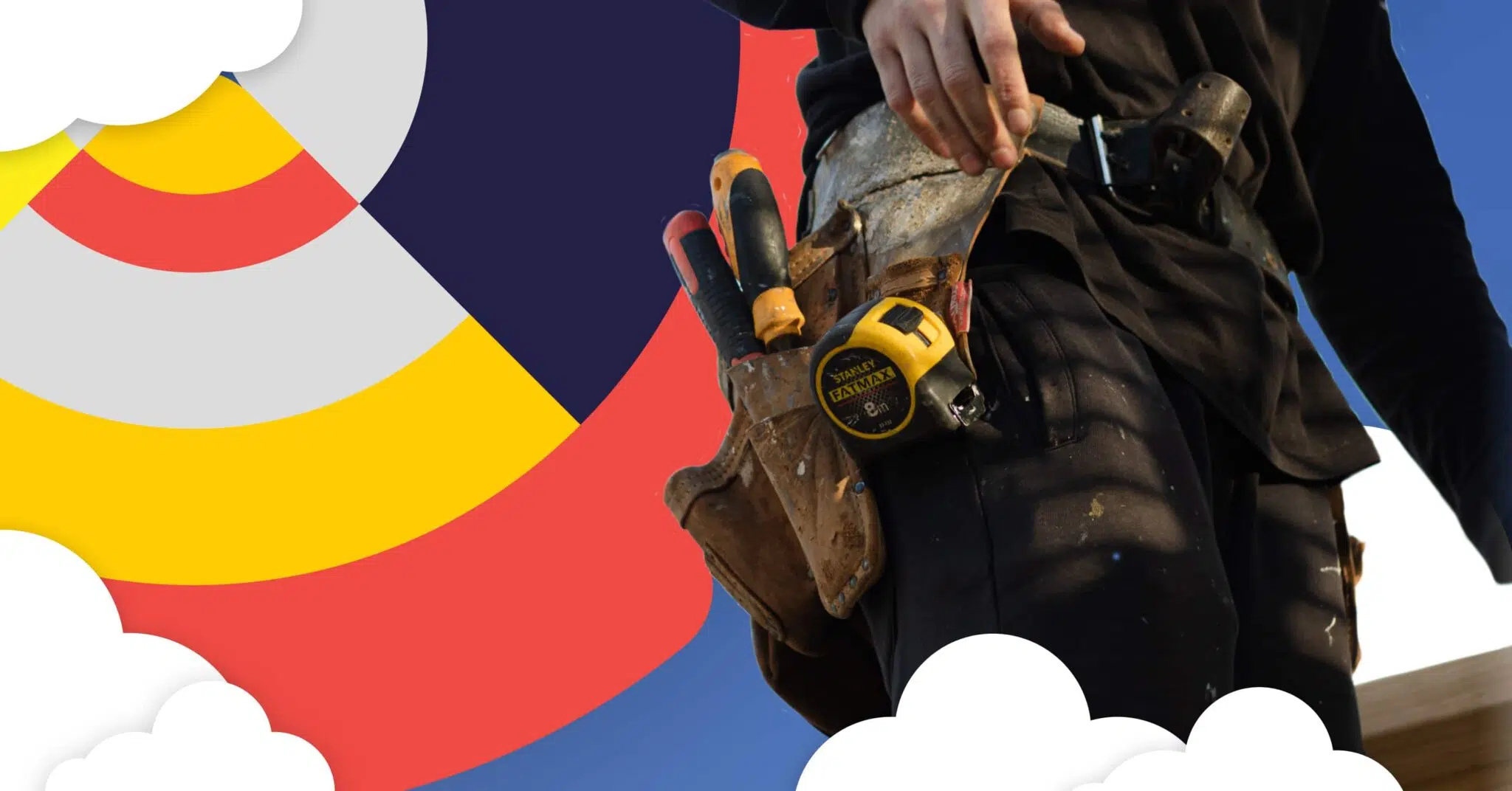Home Inspection Fees & Services in Canada

Table of contents
Purchasing a home is likely your most significant investment, so it’s worth the extra steps to have a home inspection to protect your investment. Whether you’re a first-time buyer or a seasoned homeowner, a professional home inspection offers valuable insight into the property’s condition, helping you avoid costly surprises down the road. Home inspections can influence everything from final price negotiations to future renovation plans, identifying structural issues and flagging outdated systems.
As housing markets across Canada remain competitive, many buyers wonder what home inspections include, how much they cost, and whether they’re still worth the time and money. Before you finalize your next purchase, here’s what you need to know about home inspection fees and services in Canada.
Key Takeaways
- A home inspection is a professional evaluation of a property’s condition and is highly recommended.
- Home inspections visually assess a home’s interior and exterior condition.
- Home inspection costs in Canada vary widely based on the property’s location, size, age and complexity.
What Is a Home Inspection
A home inspection is a professional evaluation of a property’s condition, typically conducted before a real estate transaction is finalized. It involves a thorough, non-invasive visual assessment of a property’s key systems and structural components, including the roof, foundation, plumbing, electrical, HVAC, insulation, and more. A home inspection aims to identify any current or potential issues that could affect the property’s safety, functionality, or long-term value.
A home inspector provides a detailed report outlining their findings, including photos and detailed notes of defects, deficiencies, or damages. While not legally required, a home inspection can protect buyers from costly surprises after closing and offer peace of mind when putting an offer in on a property.
Note: Home inspection reports do not include costs to repair, so you will need to find contractors to provide estimates once the inspection is complete.
Why a Home Inspection Matters
In today’s competitive Canadian real estate market, skipping a home inspection might seem like a way to strengthen your offer, but doing so could cost you more in the long run. A home inspection matters because it provides a clear picture of a property’s actual condition before you commit to purchasing.
In addition to peace of mind, a home inspection can give buyers leverage during negotiation. If significant issues are uncovered, buyers may be able to renegotiate the price, request repairs, or even walk away from the deal entirely.
In some cases, inspection findings can also help buyers plan for future upgrades or maintenance, ensuring they’re financially prepared. Simply put, a few hundred dollars spent on a home inspection can help safeguard your investment and prevent bigger headaches in the future.
What’s Included in a Home Inspection?
Home inspections visually assess a home’s interior and exterior condition and major systems. Inspectors look for signs of damage, wear, safety concerns, and anything requiring repairs or future maintenance. The inspection is limited to areas of the home that a home inspector can see and access during the visit.
For example, if any rooms are locked or inaccessible, the inspector cannot report on the condition or safety of that area. If the property is located in an area that gets snow accumulation and you are having an inspection done in the winter, a home inspector cannot report on the roof’s condition if it’s covered in snow.
A home inspection covers everything inside the home, from the basement or crawl space to the attic, while the exterior covers everything from the foundation to the roof. A home inspection doesn’t cover invasive testing, assessments for hazardous waste or code compliance checks. Since it’s a visual inspection, this gives buyers a clear understanding of the home’s overall condition. Here’s what’s typically covered:
Exterior
- Foundation
- Walls
- Roof and chimney
- Windows
- Garage
- Driveway
- Gutters
- Exterior water drains and downspouts
- Siding
- Porches, Patios, Decks, fences
Interior
- Plumbing
- Electrical
- HVAC
- Ventilation
- Interior water drainage
- Windows and doors
- Ceilings
- Walls
- Floors
- Cabinets
- Trim
- Visible mould
What’s Not Included in a Home Inspection?
Home inspections are limited to what the inspector can see without dismantling or damaging any part of the home. This means electrical wiring or plumbing within walls or floors that cannot be visibly inspected are not likely to be included in the report since they’d have to damage walls to gain access. Additionally, anything underground, like septic or water supply systems, won’t be included in the inspection.
Some parts of a property, like pools, may fall outside the scope of a standard inspection and may need to be arranged separately. Additionally, indoor air quality may require an add-on service to test for things like radon gas, mould, and anything else that could impact air quality and may not be visible. Here’s what’s typically not covered by a home inspection:
- Swimming Pools
- Infestations
- Asbestos Testing
- Radon Gas
- Mould
- Lead Paint
Home Inspection Costs Across Canada
Home inspection costs vary widely across Canada depending on the property’s location, size, age, and complexity. On average, buyers can expect to pay between $300 and $1,500.
Smaller properties like condos tend to be on the lower end of the range, while larger homes, older properties, or rural areas tend to be on the higher end due to the extra time and detail involved. Additional services like add-ons to test air quality or inspect for pests can also increase the cost of a home inspection.
Who Pays for the Inspection?
In most real estate transactions, the buyer pays the home inspection fee, which should be included in your budget for closing costs. Since a home inspection is not a requirement, it is considered part of the buyer’s due diligence process. It is usually arranged shortly after an offer is accepted while the deal is still conditional. By taking on this cost, the buyer gains valuable information about the property’s condition before finalizing the purchase, allowing them to renegotiate or walk away if significant issues are found.
Some sellers may have a pre-listing inspection done. This can be shared with prospective buyers to speed up the sales process. However, getting your own home inspection is still recommended as part of your due diligence before closing.
How to Choose a Home Inspector in Canada
Choosing the right home inspector in Canada is essential to protecting your investment. Start by getting referrals from your real estate agent or friends and family. Trusted sources with positive experiences with a home inspector are more likely to refer others to their services. However, it’s important to note that not all provinces have regulations or require inspector certifications, so it’s equally important to do your due diligence, even with a referral.
Look for professionals certified by a recognized industry organization, such as the Canadian Association of Home & Property Inspectors (CAHPI) or a provincial equivalent. These organizations set minimum standards for training, experience, and reporting practices, helping ensure consistency and professionalism across the industry. Members must follow the organization’s code of conduct and standards.
Additionally, inspectors who are members of an association often have liability insurance, which protects the buyer. Before you hire a home inspector, make sure to:
- Verify if the home inspector is certified or licensed, if applicable or belongs to a recognized industry organization.
- Check that the home inspector has professional liability insurance that includes general liability or errors-and-omissions coverage. This can protect you if the inspector misses something critical. However, not all provinces require inspectors to have insurance coverage.
- Verify the inspector has experience. Ask about how many inspections they’ve carried out and how many years they’ve worked as an inspector. Additionally, verify their experience with the type of property you are considering. For example, a century home may require more specialized knowledge than a new build.
- Ask if the home inspector will apply the CSA A770 standard or how their inspection procedure compares to those listed in the CSA A770 Home Inspection. You can view the standard for free in Canada by registering for an account to make a comparison.
Frequently Asked Questions (FAQ) on Home Inspections in Canada
Are home inspections mandatory in Canada?
A home inspection is not mandatory but is highly recommended. Skipping one can put buyers at serious risk of finding issues after closing that could affect the property’s structural integrity or cost significant money to fix.
Can I attend the home inspection?
Attending the home inspection is encouraged. This way, you can ask questions during the walk-through instead of waiting to read the inspection report.
How long does a home inspection take?
The time to complete a home inspection will vary based on the property size. It could take anywhere from an hour if you’re having a home inspection completed on a smaller condo unit to multiple hours for a large property with many areas to inspect.
Final Thoughts
Home inspections are a modest upfront cost that can save homebuyers significant money, time, and stress down the road. They help identify issues early, offer negotiation power, and ensure peace of mind.
Contact nesto mortgage experts to ensure your financing and homeownership journey is just as thorough as the home inspection itself.
Ready to get started?
In just a few clicks, you can see our current rates. Then apply for your mortgage online in minutes!
















